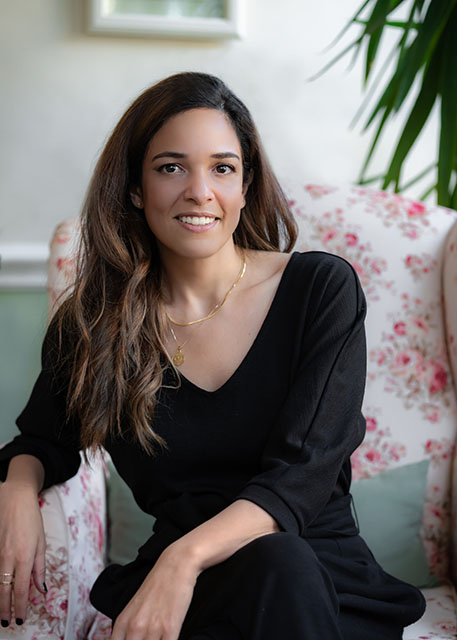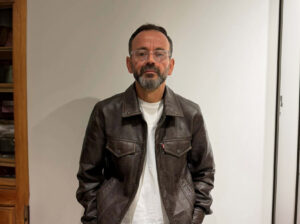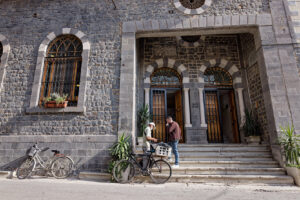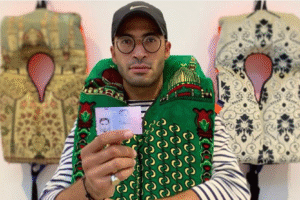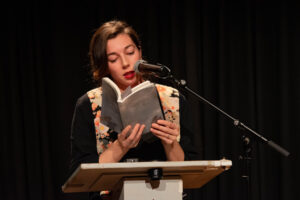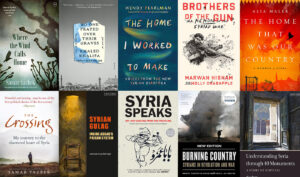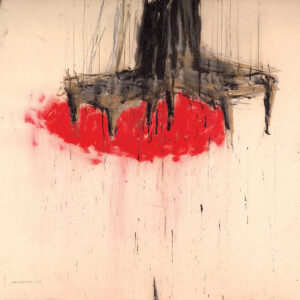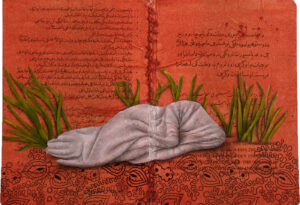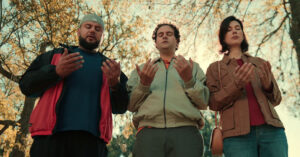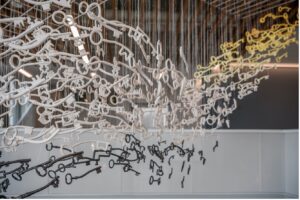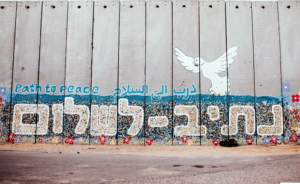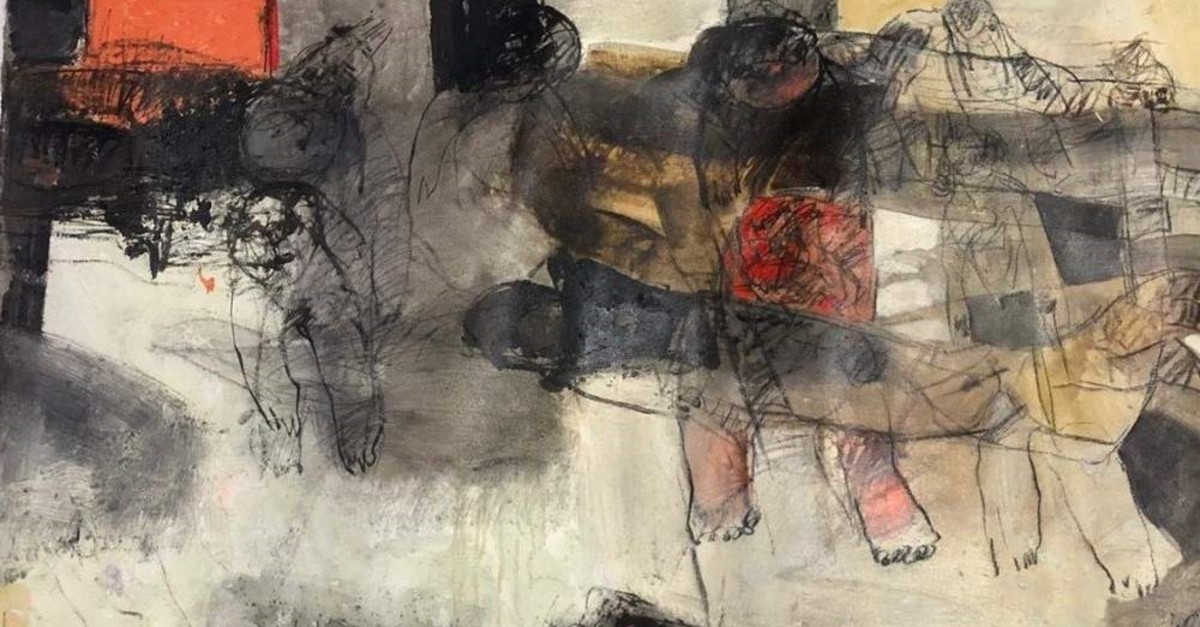
On the occasion of the paperback publication of Layla AlAmmar’s novel Silence is a Sense, we present this excerpt selected by the author. Order it here. Read a review here.
Layla AlAmmar
That night I dream of Serbia.
We’re out of Sombor, finally. They kept us there for hours, me and the runaway families I attached myself to—the Alis from Homs and the Husseins from Iraq who pretend they’re from Aleppo and the AlKhalafs from Raqqa, whose patriarch cries long into the night about the bombing of the mosque and the sacrilege and injustice and humiliation of it all. I camp out beside these families. I don’t have a tent, but some NGO-er gave me a tarpaulin, and I string it across some branches.
‘You don’t sleep with the children tonight,’ says Um Hasan from the Alis. On bad nights, nights when the terror is too close and fresh in the mind, her tent is a womb she shelters her family in. Ten or fifteen of them all piled one on top of the other so that it reminds me of the raft to Lesbos. I sleep on the ground under the open sky and fuck it all if some man decides it’s an invitation.
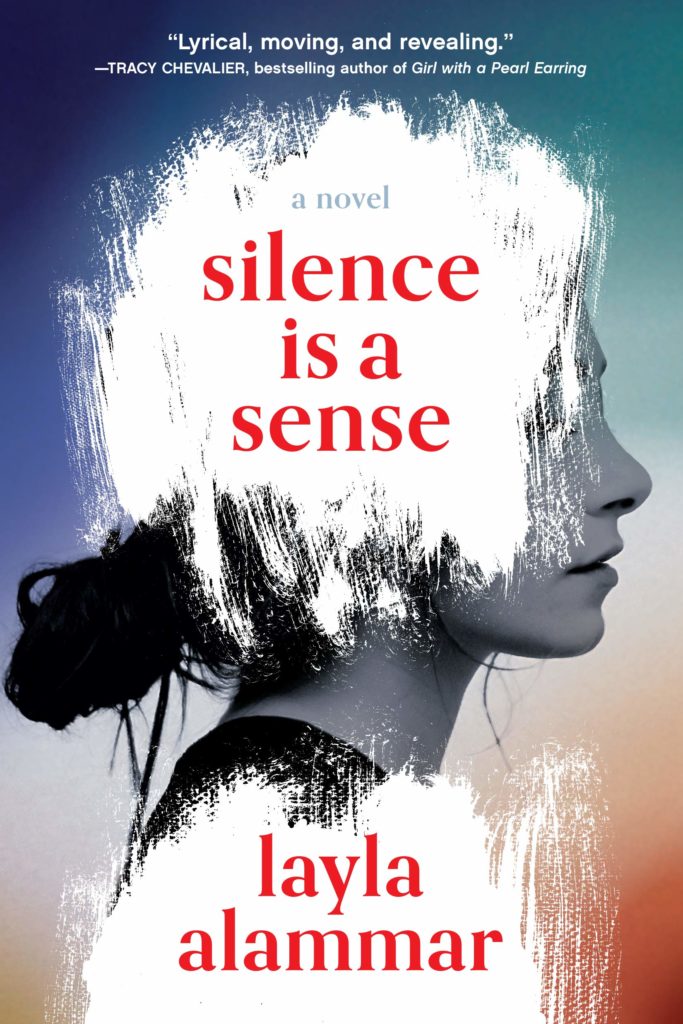
Young men shouting into the dying light of every dying day. When the struggles are done—the search for food, for water, for a place to sleep, for a smuggler and a truck to carry their families the rest of the way—they subside into their tents and give in to rage. VOILA LA RAGE QUI EFFRAIE LA SOCIÉTÉ CIVILISÉE! Yelling at their children for straying too far away in their games, at teenage daughters who venture out of the tents or wander by border fences and smile at guards, at old aunts and mothers and grandmothers for being stupid and burdensome and useless. Rough slapping of hands against skin. A vengeful fuck. A fist to an abdomen. A plea to Allah.
There’s a woman here, older than time, shriveled as a fig in the sun. Flat face, empty eyes in hollow sockets, arms like matchsticks. She’s made of paper, and her family is blowing her across a continent. She doesn’t eat, her daughter or daughter-in-law or someone she must be related to in some way shoves spoonfuls of broth between her cracked lips every so often, but most of it drips down her chin to her chest and lap. She prays all the time. More than five times a day, like she thinks the original fifty is the actual revelation. Outside their tent, by the bright wood huts, down by the muddy river, on railroad tracks so her family has to shove her out of the way of train cars coming from a long way off, when we’re huddled up in groups waiting to cross a border or board a train or be given aid, on long walks through dense forests, when you can’t tell where in the sky the sun is, she drops her bag, folds her arms across the crease of her midsection and starts al-fatiha.
Memories, or fevered imaginings. They sear me, bright white and hot. How many months is it? he asks. My husband is just over there, I lie, even as I know the opening of my legs will be required to get out of this. Scurrying by rivers and forests and marshes, begging for food and hoarding any cash I can save or steal or manage somehow to earn. Across Turkey and those terrible Grecian waters. Vomiting until my insides feel like they’re twisting up and out of my throat like vines. Clinging in furious waters to a raft that is more of a balloon. The stinking heat of Macedonia, bleeding blisters and insect bites, and Kosovo with nothing but a small hip sack and every document I have about who I am.
My family finds me here, if only in dreams.
Here where it’s the dead of winter and toes are falling off, where the people in the fields are breaking frozen leaves from trees to suck on while others find icicles on the poles and the tin sheets that hold up their tents and walk around with them in hand like lollipops.
The sun shines. Every day, but it’s just for show.
No heat. Nothing thaws. Nothing melts.
I walk, dragging them all behind me, and when I can walk no more, Mama lines us up around the dead fire pit, eldest to youngest. She places us between her knees, clamping down on our hips, and scrubs us with black soot and ash.
It burns, Mama.
She scrubs down pale chests. Armpits until they bleed.
It burns.
Scalps until we are faint.
Have they made it to Alexandria? Are Mama and Baba and Nada and all the little ones sitting around a big plate of steaming saffron rice and fragrant cuts of lamb? Are they drinking cardamom tea and full fat camel’s milk? Do they sleep on feathers, wrapped in the weighty comfort of a winter bisht?
‘Egypt is not more stable, Baba! What is happening here will happen there! Where’s the law? Look at the news!’
‘Ammu Ghaith is there and your tantes and my friends from university. You will be safe there. They share our language, our religion. We will be safe and you can be married and have a happy life.’
I ran because I would not trade one oppression for another.
We are in Serbia.
Tomorrow or the next day is Hungary.
This is where the real struggle begins, he says. Sweat drips wet and metallic onto my face, into my mouth.
How can it possibly get any worse?
It will never happen. I will never reach the end. My life is here, in the ebb and flow of humans pushing and being shoved back across borders, shuttled from detention centre to filthy campground to open fields and rocky beaches. This is to be my life.
Wake up now, the sweaty man says, pushing harder. You’re no fun.
لاجئ
Ref.u.gee
/re-fyu̇-ˈjē/
Noun: a person forced to leave their country in order to escape war, persecution, or natural disaster.
Synonyms: fugitive, exile, displaced person, asylum seeker, boat people
So many words. Why do you need so many words? What will I say if, when, someone asks? What will I tell them I am? I lash out at border officials, at men who push me too far, at women in village centres who spit at me in their foreign tongues. I use my words on them all, cursing them out in Arabic and English and all the other languages I’ve picked up along the way—Kurdish and Turkish and French and a smattering of Greek.
Fugitive and exile sound like I’ve done something wrong. You do many wrong things, he says, finishing up and rolling away. Yes, maybe, but fleeing across these European borders is not one of them.
Displaced person sounds too much like misplaced person, and though I am lost much of the time, I am not that.
Boat people is Aegean waters, and I will not claim it.
Asylum seeker
Yes, here, at last, is some truth. Asylum.
Ref.uge
/re-fyu̇-ˈjē/
from the Latin re- fugere, re– ‘back’ and fugere ‘flee’.
Noun: a condition of being safe or sheltered from pursuit, danger, or trouble.
The synonyms here are more innocuous. They carry no judgment—shelter, protection, safety, security, sanctuary.
Consider the prefix, he says as he walks away.
Ah yes, prefixes. Those pesky English devils that gnaw at the heels and push bile up the throat.
No such problem with the Arabic. No prefix there. Just the long la, as though you were about to break into a lamentation. Then the sharp jerking nod of the ji’, the hamza stopping you from venturing any further into the grief that lies there, ensnared and entangled, in such little letters.
I am a refugee. Here, in Serbia, by the waters of the Danube, which sometimes are still mirrors for white, fluffy clouds and sometimes are muddy with froth and blood and raindrops and sometimes carry big, green lily pads down through Romania, I run my finger over the word again and again.
If recall and recollect mean to ‘call’ and ‘collect’ again, does refugee contain within it, hidden and folded in a dead language, the notion of perpetual fleeing?



